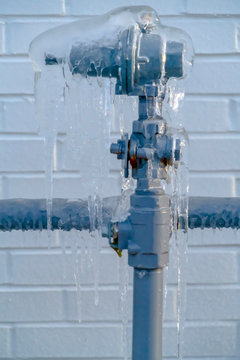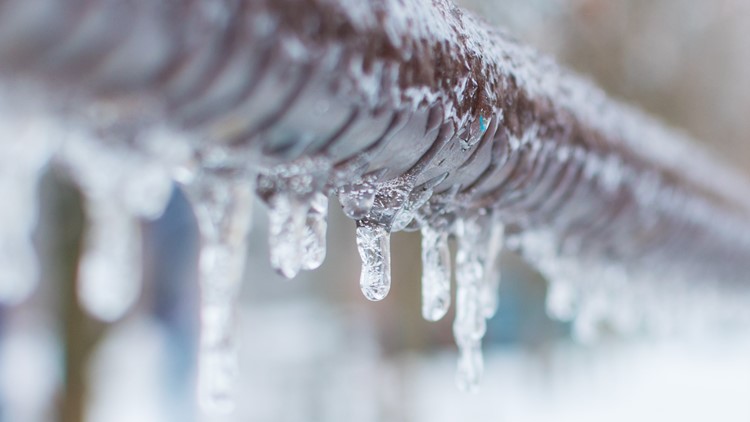Tips to Keep Your Pipes from Freezing Damage: Important Tips
Tips to Keep Your Pipes from Freezing Damage: Important Tips
Blog Article
The content further down about Preventing and dealing with frozen pipes is without a doubt compelling. Give it a go and draw your own assumptions.

Cold weather can damage your pipes, specifically by freezing pipes. Right here's just how to stop it from happening and what to do if it does.
Introduction
As temperatures decrease, the risk of frozen pipes boosts, possibly bring about pricey fixings and water damages. Understanding just how to avoid frozen pipes is essential for property owners in cold climates.
Understanding Icy Pipelines
What triggers pipelines to freeze?
Pipes ice up when revealed to temperature levels below 32 ° F (0 ° C) for extended durations. As water inside the pipes freezes, it increases, putting pressure on the pipeline walls and potentially creating them to rupture.
Risks and problems
Frozen pipelines can cause water supply interruptions, residential property damages, and pricey fixings. Ruptured pipes can flood homes and trigger comprehensive structural damages.
Indicators of Frozen Pipes
Identifying icy pipes early can stop them from breaking.
Exactly how to recognize icy pipes
Look for reduced water circulation from faucets, uncommon odors or sounds from pipes, and noticeable frost on subjected pipes.
Prevention Tips
Protecting vulnerable pipes
Wrap pipelines in insulation sleeves or use heat tape to protect them from freezing temperatures. Concentrate on pipes in unheated or external areas of the home.
Heating methods
Keep interior spaces effectively heated up, especially areas with pipes. Open up closet doors to permit warm air to distribute around pipes under sinks.
Safeguarding Outdoor Pipes
Garden pipes and outside faucets
Separate and drain pipes garden hoses before winter season. Mount frost-proof faucets or cover outside faucets with protected caps.
What to Do If Your Pipes Freeze
Immediate actions to take
If you think icy pipelines, keep taps available to soothe stress as the ice thaws. Make use of a hairdryer or towels taken in hot water to thaw pipelines gradually.
Long-Term Solutions
Architectural changes
Think about rerouting pipes away from outside walls or unheated areas. Include extra insulation to attic rooms, cellars, and crawl spaces.
Updating insulation
Invest in top quality insulation for pipelines, attics, and wall surfaces. Correct insulation assists maintain constant temperatures and decreases the risk of icy pipes.
Verdict
Protecting against icy pipes requires proactive procedures and fast reactions. By understanding the causes, indications, and safety nets, house owners can protect their pipes throughout winter.
6 Proven Ways to Prevent Frozen Pipes and Protect Your Home
Disconnect and Drain Garden Hoses
Before winter arrives, start by disconnecting your garden hoses and draining any remaining water. Close the shut-off valves that supply outdoor hose bibs and leave the outdoor faucet open to allow any residual water to drain. For extra protection, consider using faucet covers throughout the colder months. It’s also important to drain water from any sprinkler supply lines following the manufacturer’s directions.
Insulate Exposed Pipes
Insulating your pipes is an effective way to prevent freezing. Pipe insulation is readily available at home improvement stores and is relatively inexpensive. Pay close attention to pipes in unheated areas such as the attic, basement, crawl spaces, or garage. Apply foam insulation generously to create a buffer against the cold. You can also wrap your pipes in heat tape or thermostat-controlled heat cables for added warmth.
Seal Air Leaks
Inspect your home for any cracks or openings that could let in cold air. Seal any holes around the piping in interior or exterior walls, as well as the sill plates where your home rests on its foundation. Additionally, make sure to keep your garage door closed unless you’re entering or exiting. Leaving it open creates a significant air leak that can lead to frozen pipes.
Allow Warm Air Circulation
During cold snaps, it’s essential to allow warm air to circulate evenly throughout your home. Leave interior doors ajar to promote better airflow. Open kitchen and bathroom cabinets to help distribute heat consistently around the rooms. If you have small children or pets, be sure to remove any household chemicals or potentially harmful cleaners from open cabinets for safety.
Let Faucets Drip
A small trickle of water can make a big difference in preventing ice formation inside your pipes. When temperatures drop significantly, start a drip of water from all faucets served by exposed pipes. This continuous flow helps prevent the water from freezing. Additionally, running a few faucets slightly can relieve pressure inside the pipes, reducing the chances of a rupture if the water inside does freeze.
https://choateshvac.com/6-proven-ways-to-prevent-frozen-pipes-and-protect-your-home/

As a passionate reader on Helpful Tips to Prevent Frozen Pipes this Winter, I imagined sharing that excerpt was valuable. Are you aware of another person who is looking into the topic? Be sure promote it. Thanks a lot for your time. Kindly stop by our website back soon.
Call Today Report this page